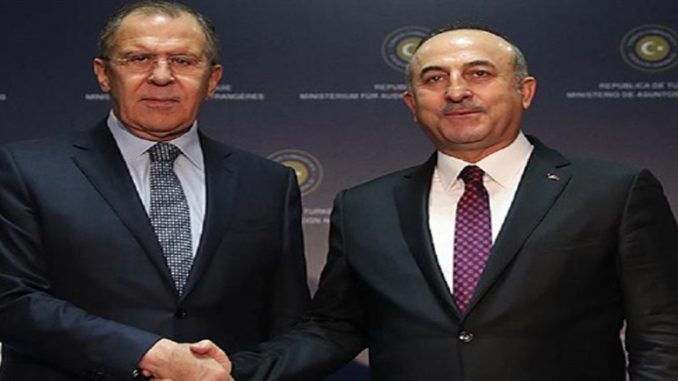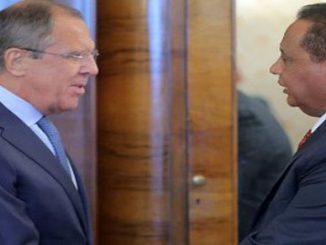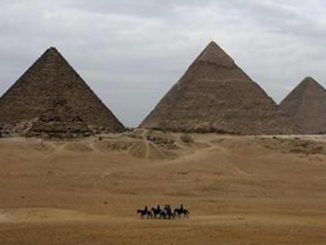
Upcoming Syria peace talks in Kazakh capital will be a “difficult” and “long” process, Russian experts say. However, no solution for Syria is possible without Turkey, says an analyst.
Following last month’s Syria cease-fire deal, brokered by Turkey and Russia, the Astana meeting comes as part of ongoing efforts by the two countries to promote a political solution in war-torn Syria.
“This is a serious progress and it could not have been achieved without Turkey,” Dolgov said, adding Turkey had a good knowledge of the “reasoning” of the warring parties in Syria, “what they want and what concessions they can make”.
“The talks in Astana will not be easy. But, we have seen similar crises successfully resolved in the past.”
Elena Suponina, Middle East expert at the Moscow-based Russian Institute for Strategic Studies said “impressive” results were achieved in a short time following the agreement between Ankara and Moscow.
“Turkey is the only country that has enough influence with the armed opposition to draw them to the negotiation table,” Suponina said, adding Astana would be a “long” process that required a lot of meetings.
Vyacheslav Matuzov, head of the Moscow-based Society of Friendship and Business Cooperation with Arab Countries, also highlighted the fact that this would be the first time the parties in Syria would be coming together “to stop the bloodshed”.
“It is a difficult process. It needs not only the efforts of Turkey and Russia, but also Iran, the U.S. and other regional countries,” said Matuzov.
He added that the “Aleppo example” showed that “significant” results could be achieved with Turkey’s support.
Turkey has evacuated hundreds of trapped civilians from besieged eastern Aleppo and given wounded civilians treatment in Turkish hospitals.
Syria has been locked in a devastating civil war since early 2011, when the Bashar al-Assad regime cracked down on pro-democracy protests – which erupted as part of the Arab Spring uprisings – with unexpected ferocity.
Since then, hundreds of thousands of people are believed to have been killed and millions more displaced by the conflict.
No solution for Syria without Turkey: Analyst
According to columnist Muhamed Jusic, Turkey’s ongoing efforts for Syria offer the best choice.
“All the supporters of the fighters on the ground in Syria are somehow [geographically] distant from Syria. They can withdraw their jets anytime and stop financing the groups they support,” said Muhamed Jusic, a Bosnian columnist for Al-Jazeera Balkans.
“However, Turkey does not have that luxury. Whatever takes place happens at the Turkish border. Therefore, there is no solution to the Syrian conflict without Turkey.”
Saying that Turkey has largely been forsaken while dealing with security problems both at home as well as at its borders or handling the refugee issue, Jusic accused the international community of not sharing the burden.
Turkey hosts some 3 million Syrian refugees, more than any other country in the world. The country has spent around $25 billion helping and sheltering refugees since the beginning of the Syrian civil war.
“In the past, Turkey proposed to its allies having a no-fly zone in northern Syria, but they rejected it,” Jusic said.
The best choice
According to him, Turkey can play a constructive role in finding a solution for Syria, adding that Turkey’s efforts both in the field as well as diplomatic negotiations for Syria are the best choice among the options presented by the world.
Following last month’s Syria cease-fire deal brokered by Turkey and Russia, the upcoming Astana, Kazakhstan meeting comes as part of ongoing efforts by the two countries to promote a political solution in war-torn Syria.
Negotiations to reach a political resolution to the six-year war in Syria are due to begin in Astana between Syrian government and opposition negotiators on Jan. 23.
On another track, the Turkish-led Operation Euphrates Shield, which began in late August to improve security, support coalition forces, and eliminate the terror threat along Turkey’s border using Free Syrian Army (FSA) fighters backed by Turkish artillery and jets, is continuing successfully.
Decrying the international community’s lack of interest in finding a solution to the conflict, Jusic said this caused major terrorist groups to emerge and spread throughout the region.
According to Jusic, the detention of 41 Syrian rebels from the 2011 Arab Spring uprising and their release after heavy torture by the Assad regime was among the major turning points making the problem grow.
“These released people are now commanders of Al-Nusra and Daesh. This is not something that happened out of the blue,” he said. “The aim of the Syrian regime was to end a serious and strong opposition in Syria as well as paint those who oppose Assad as extremists in the world’s eyes.”
Not about sect, but energy routes
Jusic also said it is impossible to achieve peace for the war-torn country unless national and international actors negotiate on issues such as resettling refugees and stop seeing them as a threat as well as cooperate more on preventing the flow of foreign fighters.
He also said that some international actors, such as Saudi Arabia and Iran, got involved in the Syrian issue for their own interests, which caused Sunni-Shia sectarian tensions to emerge.
“These two [Saudi Arabia and Iran] managed to paint the conflict in Syria as a problem between Muslims,” he said. “In reality, it is among oil lobbies. The conflict over which routes gas and oil pipelines should be transported through is painted worldwide as if it were a problem of intolerance among Muslims.”
Syria has been locked in a devastating civil war since early 2011, when the Bashar al-Assad regime cracked down on pro-democracy protests – which erupted as part of the Arab Spring uprisings – with unexpected ferocity.
Since then, hundreds of thousands of people are believed to have been killed and millions more displaced by the conflict.



